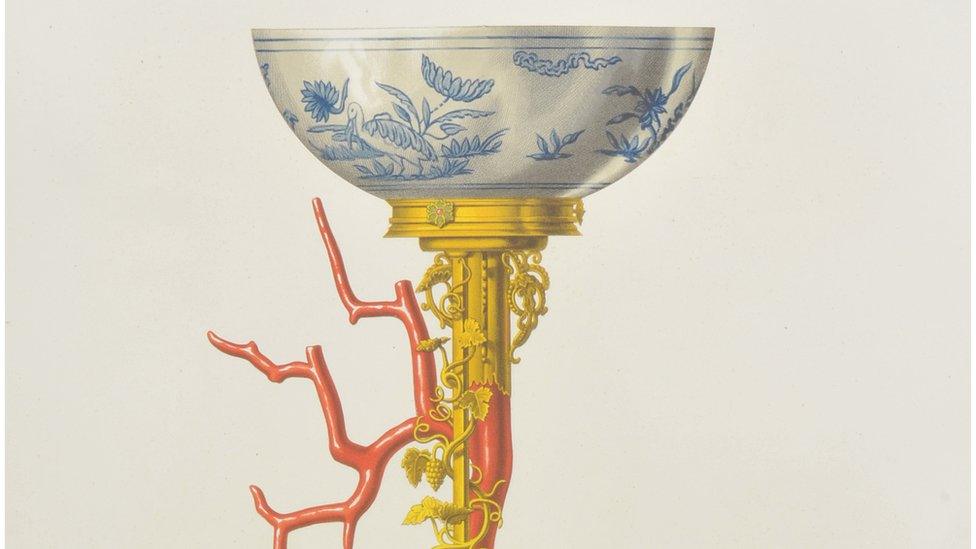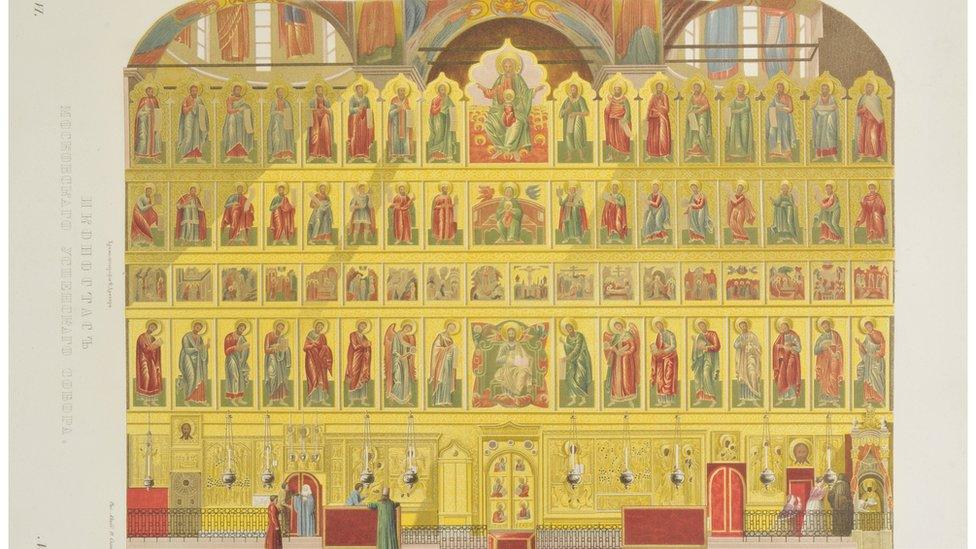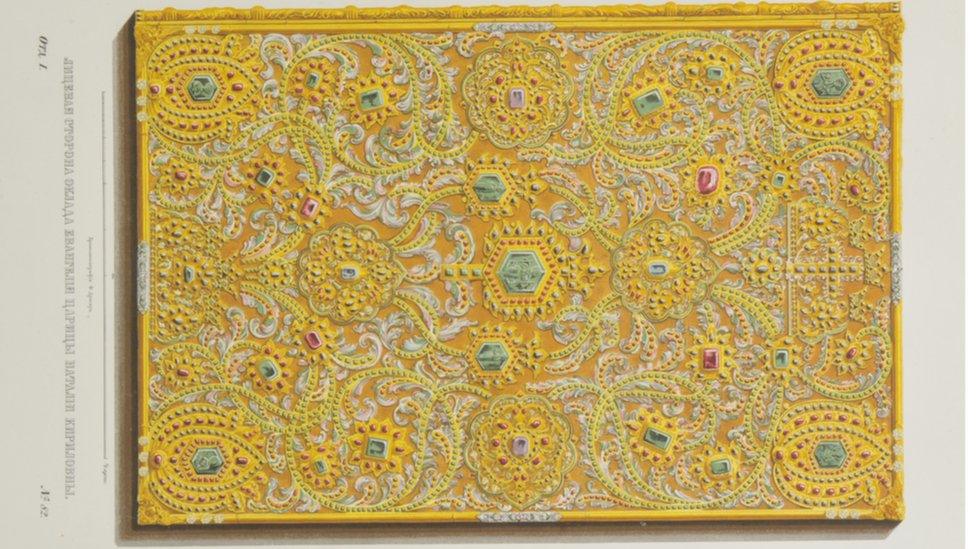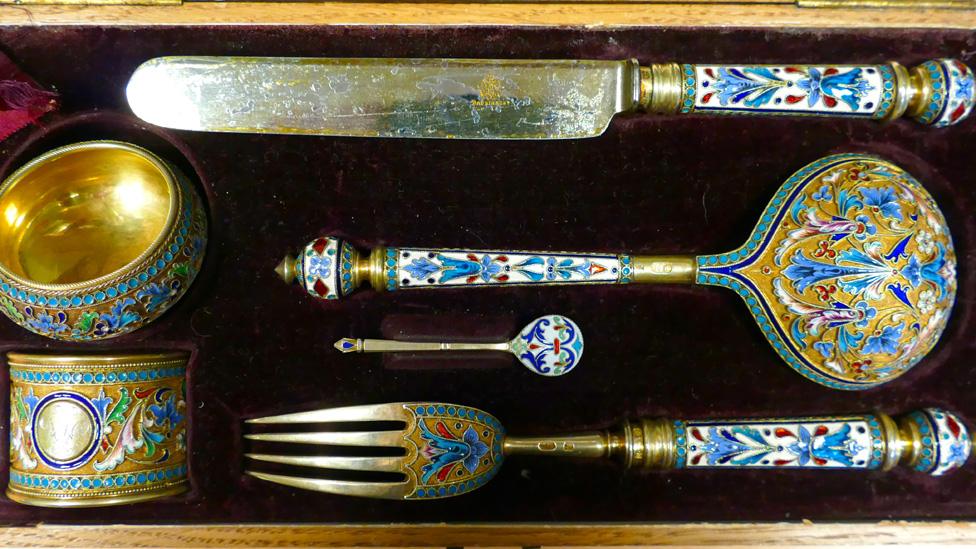Birmingham City University's rare Russian books worth £50,000
- Published

The books include one work that was issued by order of Emperor Nicholas I
A collection of rare Russian books owned by a university could fetch £50,000 when they are sold at auction.
The 200 books, mainly published in the 19th and early 20th Century, include one work that was issued by order of Emperor Nicholas I in 1849.
Auctioneers said the collection, which will be sold on 14 June, is "remarkable and seemingly unique".
Birmingham City University, which owns the books, said it was sad to see them leave but it would reinvest the funds.
'A stunning collection'
The collection was built up from the mid-19th Century to support art and design education in the university's previous life as the Birmingham College of Art.
Chris Albury, auctioneer and senior valuer for Dominic Winter, which is handling the sale, said: "It's a very interesting and varied collection which includes a number of rarities, the undoubted highlight being the sumptuously illustrated Antiquities of the Russian Empire.

The rare Antiquities of the Russian Empire set contains illustrations of more than 500 plates of Russian artefacts
"This monumental, rare and influential work contains over 500 plates of Russian artefacts including icons, crowns, costume, weapons and jewellery."
The Antiquities of the Russian Empire books were one of only 600 sets issued on the order of Emperor Nicholas I.
Mr Albury said the Birmingham copy was "remarkable and seemingly unique" because it contained English descriptions of the artefacts.
"We expect huge transatlantic international interest for this English language set," he said, estimating it could fetch more than £30,000 at the sale in South Cerney, Gloucestershire.

The university says the books are no longer relevant to current teaching
The university said the books are now being sold because they no longer have relevance to current teaching or research.
Steve Rose, deputy director of library and learning resources, said it was a "stunning collection".
"I will be sad to see the books leave, but it means we can place a greater emphasis on our [books] that have direct relevance to the university's research," he said.
- Published2 March 2017
